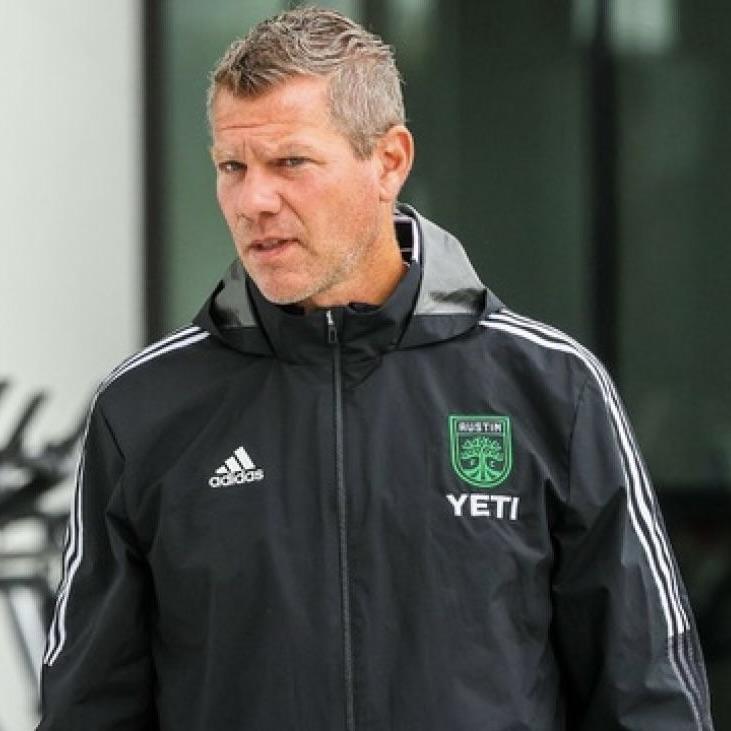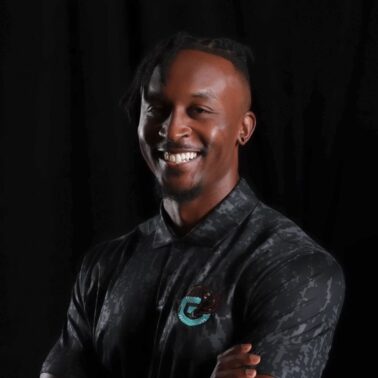“You cannot train anything in isolation; the physical, emotional, and cognitive are inseparable.”
David Tenney
What You will learn
- The complex interplay of physical, emotional, and cognitive preparation in elite sports.
- How cognitive diversity within a high-performance team can lead to better decision-making (and why too much can hurt!).
- The truth about tactical periodization and why the traditional approach to training might be holding athletes back.
- How load management and recovery are misunderstood and why emotional recovery is often overlooked.
- What soccer and basketball can teach us about balancing intensity and specificity for peak performance.
On the latest episode of The Finding Small Wins Podcast, host Dr. Adam Loiacono sat down with David Tenney, a high-performance expert with decades of experience across professional soccer and basketball. They discussed tactical periodization, leadership in performance teams, and its integration into sports rehab, training, and coaching. Here’s a recap of their enlightening conversation.
David Tenney’s Journey: From Player to High-Performance Leader
David’s career began as a professional soccer player, transitioning into coaching and eventually becoming a pioneer in creating high-performance departments. With stints at MLS teams, the NBA’s Orlando Magic, and most recently with Austin FC, David shared insights on his evolution from practitioner to facilitator, emphasizing the importance of interdisciplinary collaboration.
MLS vs. NBA: Contrasting High-Performance Demands
David compared his experiences in MLS and the NBA, highlighting how game schedules dictate approaches to performance and recovery. While MLS offers more structured training weeks, the NBA’s relentless schedule leaves little room for traditional preparation. This disparity illuminated the importance of understanding each sport’s unique demands and the necessity of adapting methodologies accordingly.
The Essence of Tactical Periodization
Tactical periodization, a methodology popularized by Vítor Frade in Portugal, integrates physical, emotional, and cognitive training into a holistic framework. Rather than isolating components like speed or strength, it emphasizes their interplay within the context of sport-specific tactics.
Key principles include:
- Complex Systems Thinking: Training must reflect the game’s complexity, blending physical, tactical, and emotional elements.
- Morphocycle Design: Weekly training plans prioritize peak performance on game day while balancing recovery and preparation.
- Cognitive and Emotional Integration: Athletes must train under conditions that mirror game-day intensity, including decision-making and emotional stress.
Cognitive Diversity in High-Performance Teams
David emphasized the importance of cognitive diversity within performance teams. While hiring staff familiar with the sport is beneficial, assembling a team with varied perspectives fosters better decision-making. However, too much diversity without shared goals can create confusion. The balance lies in cultivating a culture where differences enrich rather than disrupt.
Relevance to Rehabilitation and Return to Play
Dr. Loiacono and David discussed the application of tactical periodization in rehab. Using the control-to-chaos continuum, they outlined how practitioners can safely reintroduce athletes to specific, game-like scenarios. By integrating cognitive and emotional challenges early in rehab, athletes maintain mental sharpness, aiding a smoother return to play.
Insights into Load Management
The discussion touched on the controversial topic of load management. While often misunderstood, its purpose is to balance physical, emotional, and cognitive demands, ensuring peak readiness during critical moments. David highlighted how understanding a player’s unique recovery needs and game-specific requirements drives effective load management strategies.
Advice for Aspiring Sports Professionals
David encouraged listeners to challenge linear thinking and adopt a systems-based perspective. By asking better questions and understanding the dynamic interplay of training variables, aspiring professionals can elevate their practice and better support athletes.
The Professional Soccer Performance Association (PSPA)
David also shared his work with the PSPA, an organization fostering collaboration among MLS performance practitioners. Their upcoming conference in December will feature leading experts, offering valuable insights to soccer and performance professionals alike.
Want to Learn more from David Tenney?
Listen here – Finding Small Wins Podcast:
David Tenney – Tactical Periodization & High Performance Teams
10 Key Takeaways
- Tactical Periodization is Holistic: Tactical periodization integrates physical, emotional, and cognitive aspects into training, emphasizing complexity over reductionist approaches. It prioritizes preparing athletes for the dynamic, multifaceted demands of their sport.
- Morphocycle Planning is Crucial: Training weeks should revolve around a structured cycle (morphocycle), with each day serving a specific purpose. This ensures peak performance on game day while balancing recovery and preparation.
- The Emotional Component is Undervalued: Emotional recovery is as important as physical recovery. For instance, allowing athletes a day off post-game to spend time with family can promote emotional recovery, benefiting overall performance.
- Cognitive Diversity Improves Performance Teams: High-performance teams thrive when staff bring diverse perspectives. However, balance is key—too much diversity can lead to confusion, while too little stifles innovation and critical thinking.
- Specificity Drives Return-to-Play Success: Effective rehabilitation and return-to-play protocols emphasize sport-specific activities as early as possible. Incorporating cognitive and emotional challenges mirrors game-day demands, speeding up the transition back to competition.
- Understanding the Game Enhances High-Performance Roles: Practitioners with a deep understanding of their sport better align their work with coaches’ tactical goals. While not always necessary, this knowledge can elevate the quality of support provided to athletes.
- Load Management is Complex and Nuanced: Load management isn’t just about avoiding injury but optimizing emotional and physical freshness for critical moments. Misinterpretation of load management often overshadows its strategic value.
- Veteran Players Often Do Less but Perform More: Experienced athletes like Lionel Messi thrive by optimizing cognitive and technical aspects, often requiring less physical output. This challenges the assumption that “bigger, faster, stronger” is always better.
- Strength and Conditioning Has Limits in Skill-Driven Sports: While strength and conditioning are essential, sports like soccer and basketball often require practitioners to iinclude technical skills and decision-making.
- Ask the Right Questions to Advance in Performance: Success in sports performance stems from challenging assumptions, understanding complexity, and tailoring approaches to individual and team needs. Developing sensitivity to athletes’ responses and needs is a critical skill.
episode timeline
00:00 Introduction and Background of David Tenney
02:54 Comparing MLS and NBA Performance Dynamics
05:48 Cognitive Diversity in High-Performance Teams
08:56 The Role of High-Performance Directors
11:48 Understanding Tactical Periodization
14:53 Influences of European Coaching Methodologies
18:03 Complex Systems vs. Reductionist Approaches
21:09 Emotional and Cognitive Aspects in Training
23:52 Strength and Conditioning in Soccer
26:46 Coaching Philosophy
29:52 Future Perspectives
36:39 The Complexity of Team Dynamics
42:11 Tactical Periodization in Training
47:29 Individualization in Coaching
01:01:31 Rehabilitation and Return to Play
01:06:09 Building a Community in Soccer Performance
01:10:47 Asking the Right Questions for Growth



